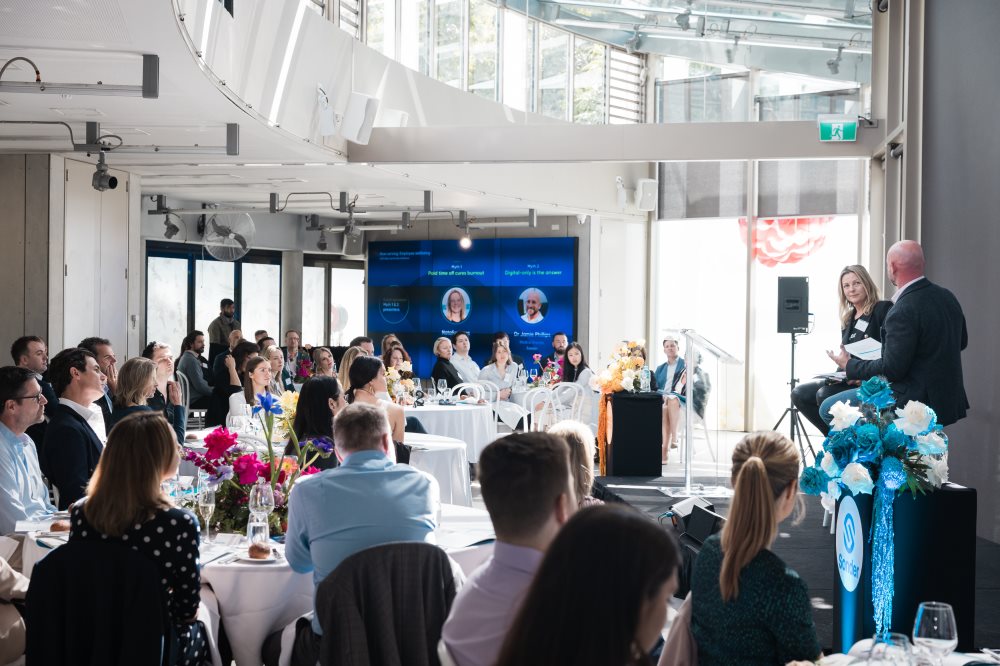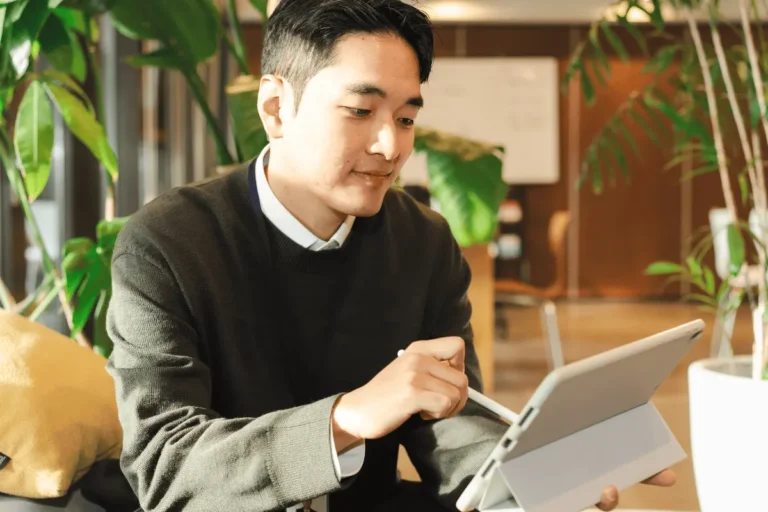Too many leaders are investing money in wellbeing initiatives that are not evidence-based and/or are increasing their organisational risk. These are just two of the truths shared at Sonder’s recent event (held in partnership with Marley Spoon) for wellbeing leaders in Sydney, where we sought to debunk five myths about employee wellbeing, and explore the science behind food and mood.
Hosted by Christopher Marr, our co-founder and CCO, we were delighted to welcome the following guest speakers:
- Natalie Jones, Group Executive – People and Culture, Quantium
- Rachel Scoular, Accredited Practising Dietician and Nutritionist, Marley Spoon
- Dr Jamie Phillips, Medical Director, Sonder
If you missed the event, please find below a quick recap of some of the highlights.
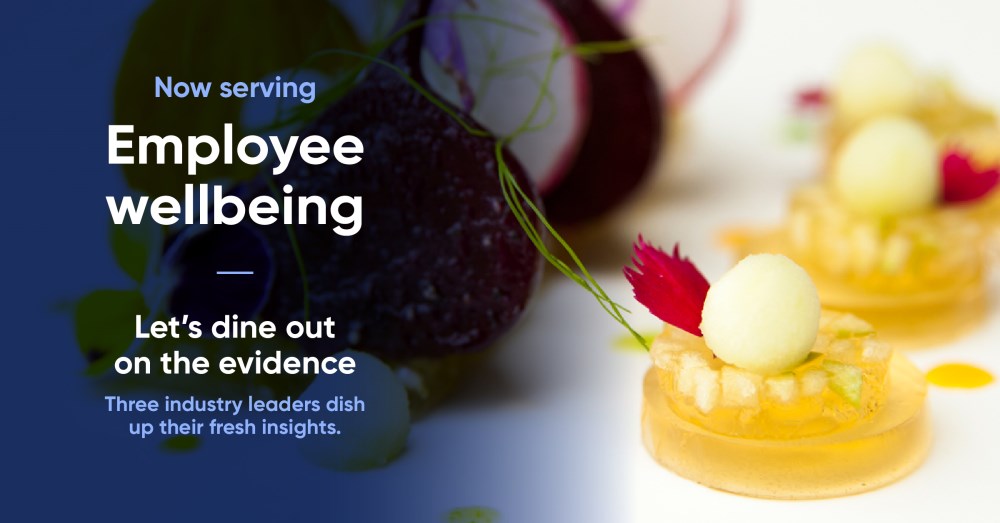
Are you delivering evidence-based strategies?
Marr opened the event by challenging guests if they could be sure they were delivering evidence-based strategies, and that they delivered the most meaningful support possible for their people and organisations.
He shared the results of Sonder-commissioned research that showed that 92 per cent of employees want their next employer to offer mental health support.

Myth 1: paid time off cures burnout
Jones and Dr Phillips drew on real-life insights and evidence from our report, 5 myths of employee wellbeing, to expose the myth that paid time off cures burnout.
Jones told the audience that while paid time off was a popular, headline-grabbing concept, it was a temporary solution for burnout, not a cure.
They agreed that prevention was better than cure and invited organisational leaders to investigate the workplace environment issues that may be causing burnout so that leaders could then make evidence-based decisions and invest in a preventative, holistic approach to wellbeing.
“I see paid time off as a band-aid solution to a broken arm. Yes, it’s probably going to provide some instant relief, and it’s probably going to give you a little bit of oxygen to catch your breath, but is it going to change anything sustainably? Probably not.”
Natalie Jones, Group Executive for People and Culture, Quantium
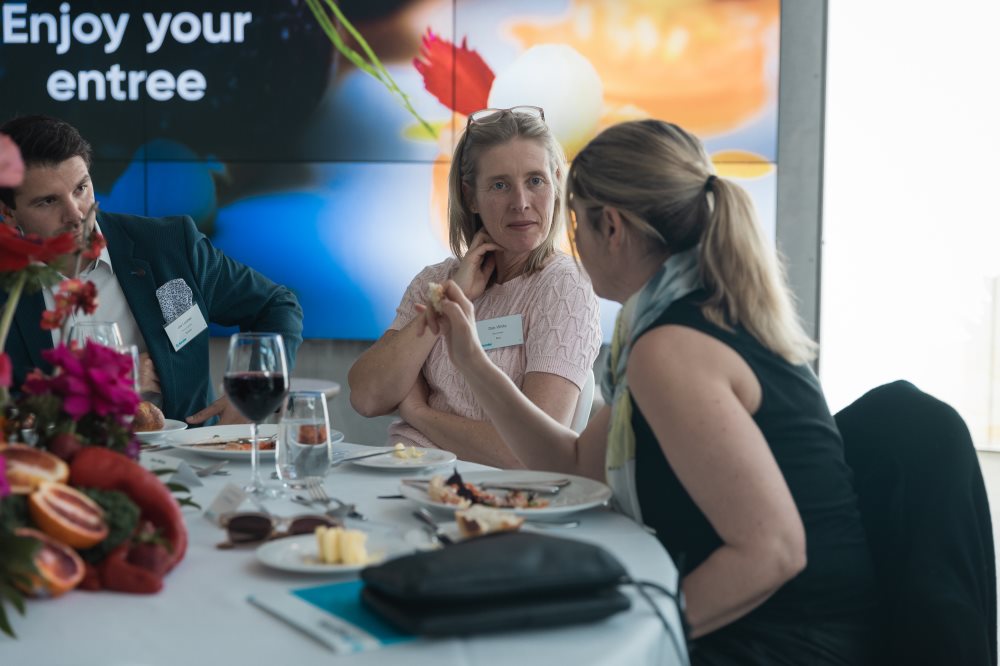
Myth 2: digital-only is the answer
Reflecting on his 20 years of medical experience, Dr Phillips shared that Australia has one of the most complex healthcare services (and one of the lowest levels of health literacy) in the developed world. He added that people living in Australia also faced challenges in accessing care, especially those experiencing financial hardship.
Dr Phillips said that technology can help solve some of these access problems, but that digital tools should be used to enhance, not replace, a more holistic and comprehensive approach to wellbeing. He said that hybrid care (aka the combination of virtual and human support), can better improve wellbeing outcomes and increase ownership and participation, but it needs to be accessible to all to be truly equitable.
“Post-COVID, we’re seeing that the initial consultations, or the initial interaction and the information seeking, is happening online, but people are craving human interaction. It’s getting the balance right between the technology and human interaction that’s helping us solve complexity and the access block problem.”
Dr Jamie Phillips, Medical Director, Sonder

Myth 3: wellbeing cannot be measured
Jones told the audience that too many well-meaning organisations were investing in underperforming wellbeing initiatives without evidence that those initiatives would add value.
Jones said steps that wellbeing advocates could take to secure organisational buy-in for initiatives might include:
- Seeking leadership consensus on why wellbeing is important for the organisation;
- Creating a head of wellbeing role within the People and Culture team, to drive the development of an evidence-based wellbeing strategy;
- Separating the development of a wellbeing strategy away from safety, which tends to be reactive rather than focus on prevention;
- Investing in data collection tools to gather insights and build an evidence base; and
- Giving everyone within the organisation a wellbeing assessment through a third party, to collect data and determine the three most significant problems that the organisation needs to address.
““[When I was at Mars,] in one study, we found that factories that spent the most on the biggest wellbeing initiatives had the least impact. The notion that spending loads of money will impact employee wellbeing can be false.”
Natalie Jones, Group Executive for People and Culture, Quantium
Keynote: food and mood
Scoular from Marley Spoon presented the day’s keynote, as she explored the link between food and mood. She drew on a Woolworths report that found that nearly all Australians struggle to meet the Australian dietary guidelines for healthy eating.
She discussed the findings of the SMILES (Supporting the Modification of Lifestyle in Lowered Emotional States) trial, the first of its kind to investigate the connection between food and mood. Melbourne researchers randomly assigned trial participants to one of two groups:
- Control group: The ‘Befriending group’ – participants met with a researcher regularly and discussed subjects they enjoyed that were not emotional and/or mental health-related; and
- Intervention group: The “Diet group” – participants received dietary intervention, including diet education, support, and nutrition counselling. In addition, participants were encouraged to follow a modified Mediterranean diet (known as the “treatment diet”).
Scoular said there was clear evidence that poor mental health is directly linked to diet and encouraged guests to put the results of this research into practice by eating a minimum of “30 plants” week.
“The results of the study were quite astounding. Researchers found that a third of those in the intervention group met criteria for remission of major depression, compared to only eight per cent of those in the control group.”
Rachel Scoular, Accredited Practising Dietician, Marley Spoon
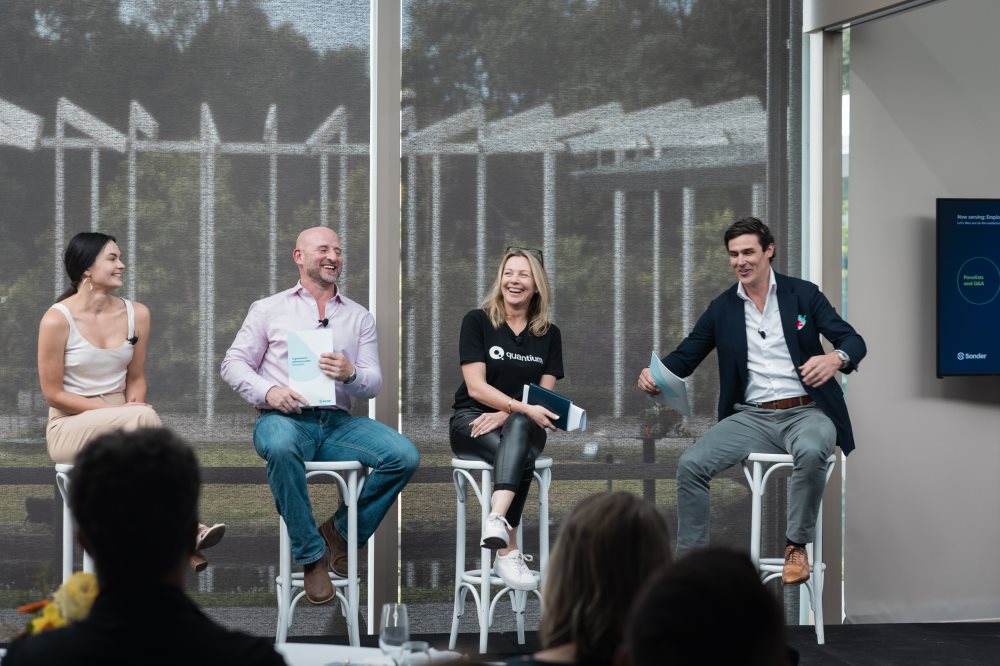
Myth 4: employees need psychological debriefing after trauma
Dr Phillips expressed concern that organisations were still engaging in psychological debriefing after traumatic events, despite a growing body of evidence suggesting it could be doing more harm than good.
Phillips referenced a World Health Organisation (WHO) literature review in 2012 which concluded that “psychological debriefing should not be used for people exposed recently to a traumatic event…”
He also cited the Australian Guidelines for the treatment of acute stress disorder (ACD), post-traumatic stress disorder (PTSD) and complex PTSD, which also recommend against psychological debriefing.
Phillips said a preferable alternative to psychological debriefing is Psychological First Aid (PFA), a form of peer-to-peer support that reinforces safety and encourages hope.
Myth 5: perks keep people engaged
The final myth that Jones and Dr Phillips explored was that perks keep people engaged. Jones said that a highly competitive hiring market means that employers are offering more perks than ever, but it’s questionable if these ‘benefits’ genuinely contribute to an engaged and healthy workplace.
Jones and Phillips invited business leaders to instead foster a sustainable wellbeing environment and promote it as part of their organisation’s employee value proposition (EVP), commenting that organisations that invest in employee wellbeing enjoy sustainable engagement, as well as increased employee loyalty and retention.
“I view perks as clickbait. They get you in, and they do attract you, but is that perk going to be the thing that makes sustainable change? I’m confident it’s not.”
Natalie Jones Group, Executive for People and Culture, Quantium
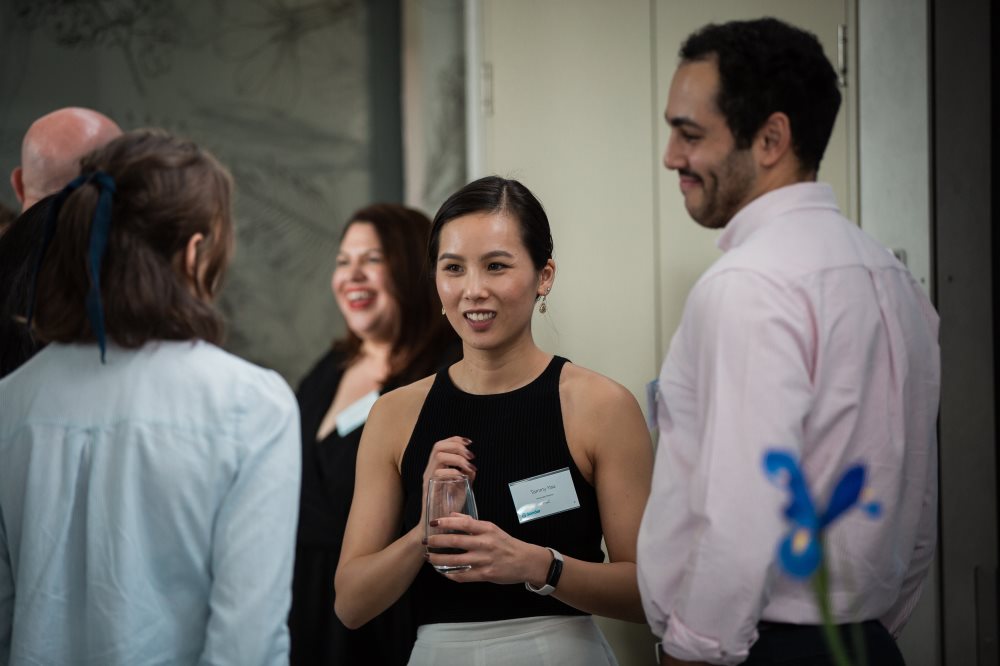
Thank you
A warm thank you to all of the wonderful leaders who attended our lunchtime event. We are especially grateful to our valued customers Natalie Jones from Quantium and Rachel Scoular from Marley Spoon for joining Sonder’s Dr Jamie Phillips and Christopher Marr, to help share data, insights, and stories about how we can #ReimagineWellbeing with evidence-based strategies together with healthy foods.
How Sonder helps to mitigate psychosocial risks in the workplace
If you are still hungry for employee wellbeing evidence, we invite you to download our report, 5 myths of employee wellbeing.
If you would like to register (or submit topic ideas) for future events, we invite you to contact events@sonder.io.
For more information about how Sonder can help you rethink your wellbeing strategies, we invite you to contact us here.
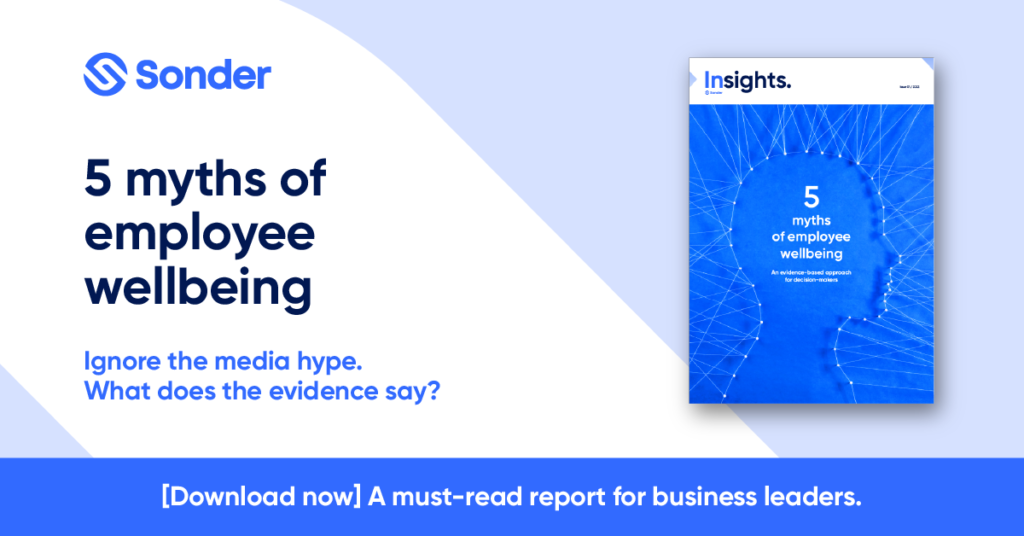
About Sonder
Sonder is a technology company that helps organisations improve the wellbeing of their people so they perform at their best. Our mobile app provides immediate, 24/7 support from a team of safety, medical, and mental health professionals – plus onsite help for time-sensitive scenarios. Accredited by the Australian Council on Healthcare Standards (ACHS), our platform gives leaders the insights they need to act on tomorrow’s wellbeing challenges today.
